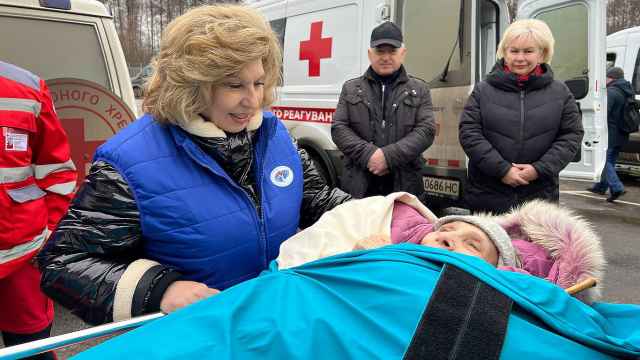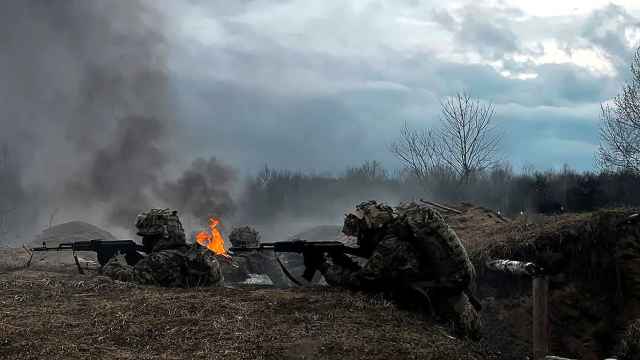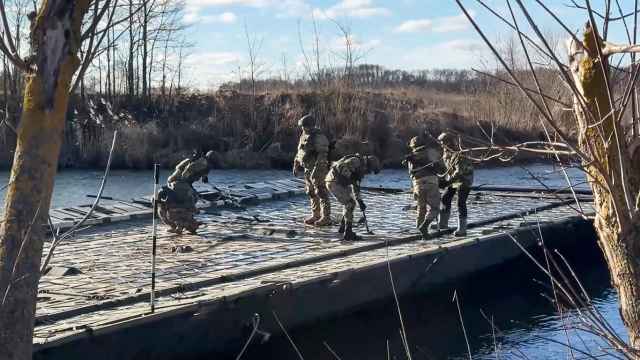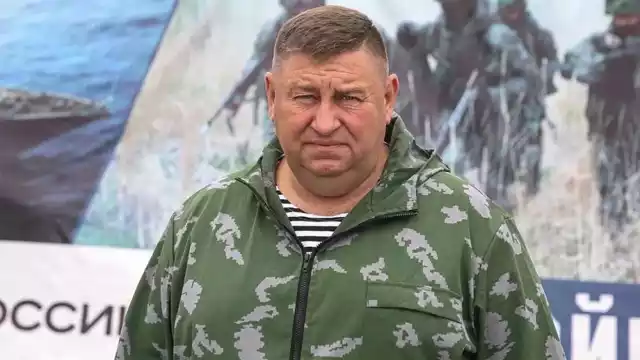Russian investigators said Thursday that they have charged a 17-year-old from the Kursk region with “rehabilitating Nazism” after he allegedly submitted a photo of an adult film actor to be included in a World War II memorial installation.
The “Faces of Victory” memorial, placed near a government building in the town of Zheleznogorsk ahead of Victory Day in May, was intended to display portraits sent in by residents of veterans of both World War II and Russia’s full-scale invasion of Ukraine.
A local activist later spotted a black-and-white image of American model and gay porn actor Billy Herrington among the portraits. Herrington became a viral meme worldwide after fans created mash-up parodies, known by the Japanese name “Gachimuchi,” using clips from his adult films.
Police said they learned that a teenager submitted the photo of Herrington, adding that he had confessed to sending in the image as a joke.
On Thursday, the regional branch of Russia’s Investigative Committee, which probes major crimes, announced that the teenager, who was not named, faces criminal charges.
According to investigators, the photograph of Herrington “contained signs of humiliation of the honor and dignity of veterans of the Great Patriotic War,” Russia’s term for World War II.
They added that the teen had photographed the installation and posted it on social media “for viewing and discussion by its participants,” without specifying which platform. Investigators did not say whether he had been taken into custody, noting only that the circumstances were still under investigation.
Charges of “rehabilitating Nazism” carry a maximum sentence of five years in prison. Civil rights advocates have criticized the law, signed by President Vladimir Putin in 2014, as vague.
A Message from The Moscow Times:
Dear readers,
We are facing unprecedented challenges. Russia's Prosecutor General's Office has designated The Moscow Times as an "undesirable" organization, criminalizing our work and putting our staff at risk of prosecution. This follows our earlier unjust labeling as a "foreign agent."
These actions are direct attempts to silence independent journalism in Russia. The authorities claim our work "discredits the decisions of the Russian leadership." We see things differently: we strive to provide accurate, unbiased reporting on Russia.
We, the journalists of The Moscow Times, refuse to be silenced. But to continue our work, we need your help.
Your support, no matter how small, makes a world of difference. If you can, please support us monthly starting from just $2. It's quick to set up, and every contribution makes a significant impact.
By supporting The Moscow Times, you're defending open, independent journalism in the face of repression. Thank you for standing with us.
Remind me later.






